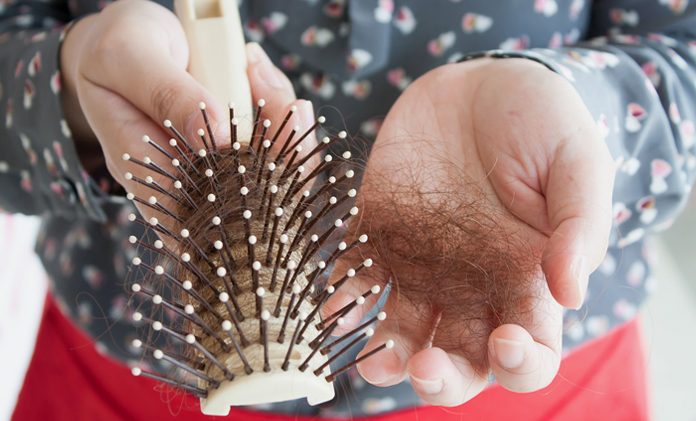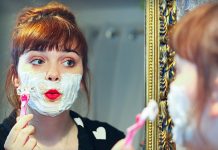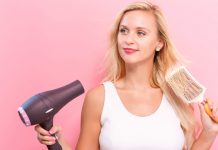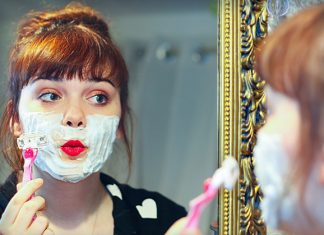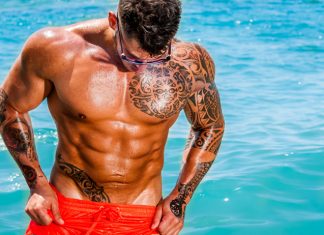Hair is essential as it determines our appearance and makes us look good. People with more volume of hair look better than those with less. We cut our hair and style it according to our choice.
Our hair acts as an expression for us and sets our image. When we suffer from excessive hair fall, our hair thins out and looks lifeless. Women with less volume of hair usually feel less feminine and suffer from falling self-esteem.
How Menopause Affects Our Hair?
Menopause and hair loss are interlinked. The average age of menopause is usually around fifty, and during the phase of menopause, many women start to notice changes in their own hair patterns.
Normal hair loss is something we all experience, but it becomes a significant problem when it increases to a significant amount. After menopause starts, the hair condition and volume appear to worsen, and the hair loss is not replaced as it always used to be even before menopause started.
Some women also experience profound hair loss and thinning of hair at the head crown portion. The entire pattern of hair growth gets disturbed.
However, complete hair loss or baldness is rare and generally happens only in medical treatment like chemotherapy.
We cannot ignore menopause as it is a natural and biological process that every woman experiences in their lives. During menopause, the body goes through several changes as it adjusts to various hormonal changes.
Apart from hair loss, symptoms like hot flashes, insomnia and mood swings are also common ones.
However, the hair loss problem is usually lesser than what men might face. Overall, thinning of hair is more common than a prominent bald spot on the head. The thinning can happen at any head point, like the front, top, and sides.
Studies and researches have suggested over the years that hair loss during the time of menopause is generally due to a hormonal imbalance. Primarily, it is related to the low production of estrogen and progesterone, which are the main hormones that promote faster hair growth.
As the hormones drop during menopause, women face the embarrassing problem of hair loss, especially while brushing or washing their hair. The hair starts to get thin and eventually fall off.
Moreover, a decrease in estrogen and progesterone gives rise to the production of a male hormone called androgens, responsible for shrinking the hair follicles and hair loss that it leads to. Androgen can also lead to hair growth on the face instead.
We see many menopausal women with facial hair. Menopause hair loss or irregular growth of hair in other parts of the body results from hormonal disturbances.
However, there are other factors too that can contribute to a significant amount of hair loss during the stage of menopause. These factors are:
- An extreme level of stress
- Certain Illness
- Lack of certain nutrients
- Certain Medical Treatment like chemotherapy
Blood tests for diagnosis can help one to detect the other causes of hair loss. Loss of hair can make one feel self-conscious about their physical appearance.
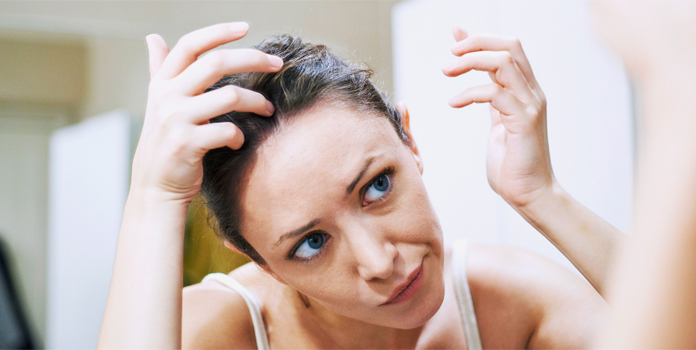
You can take steps to prevent excessive hair loss and keep the hair fall in control. Follow the following tips to keep the hair healthy and strong even during menopause.
The following suggestions for menopause hair loss prevention will save the loss of confidence that one may suffer due to excess hair loss and bald spots and patches.
1. Stress Reduction
It is essential to keep the stress levels under control and in check to prevent the imbalances of hormones. Reduced production of estrogen can affect brain chemistry and lead to mood swings, depression, and anxiety.
Yoga therapy and breathing relaxation can significantly help one to fight symptoms of menopause. Exercises daily can also keep one stress-free and active.
2. Workouts
Exercising regularly is very crucial to maintain a healthy lifestyle. You will be energized, stronger and happier as you incorporate exercise into your day to day routine.
Moreover, exercising will keep the other symptoms of menopause like weight gain, mood swings, insomnia, etc., at bay. Additionally, exercising will maintain hormonal balance properly and eventually proper and healthy hair growth.
You may consider taking new workout ideas from an expert. You can go out for a walk or run or join a gym to shed the extra fat and restore the proper growth of your hair.
3. Eat Properly
Eating a balanced and low-fat diet is the best way to fight against hair loss. Ensure a sufficient amount of fruits, vegetables and whole grains in your meal each day.
It is also vital to include mono-saturated oils like olive oil and sesame oil in your diet. Drinking green tea, taking supplements of folic acid and even vitamin B6 can help restore proper hair growth.
Essential fatty acids play a major role in maintaining the health of the hair. Fatty acids in tuna and salmon, flaxseeds oil, almonds, and walnuts can be procured in abundance.
4. Keep Hydrated
Our bodies need to remain hydrated to function properly. Therefore, drink plenty of water throughout the day.
However, one must not have too many artificial packed juices, aerated, and soda drinks as they lead one to more weight gain and contain more sugar than the body requires.
The amount of water requirement varies from person to person based on their health conditions and intensity of exercise. For a standard rule, one must make a point to have at least 8 to 10 glasses of water every day to keep your body and hair hydrated. Water acts as a moisturizer for the hair and saves the hair from dullness.
5. Keep It Natural
Avoid artificial methods of hairstyling. It is best to avoid hair heating tools like hair straightening iron and dryers to avoid hair breakage and hair drying.
Moreover, these artificial hair styling methods cause weakness to hair and lead to hair loss. In hair colouring, it is best to go for natural hair colour than other various colourful shades.
Too much hair colouring can destroy the hair quality due to its artificial chemicals content. Always apply a nourishing conditioner after shampooing your hair to keep the scalp healthy. Too many artificial methods can lead to drying and itchy scalp and eventually face hair loss.
If you swim frequently or daily, make sure to put on a swimming cap, as the chlorine content in pool water can contribute to poor quality of hair and hair breakage. Avoid too much exposure to the sun, wind and air pollutants.
Just like these factors are damaging for your skin, they are equally harmful to your hair. So, it is always important to wear a hat or any other protection to save the hair from damage, drying and breaking.
6. Talk to Your Doctor for Side-effects of Medicines
Certain medications lead to hair loss as side effects. If you are already experiencing significant hair loss due to some drugs, talk to your doctor about it. You may not be sure, but it is always good to consult a doctor even if you have an air of doubt.
Your doctor may replace your medication to stop the possible cause of hair loss. It is better to take any decision after consulting a doctor. If you suddenly stop any medication on your own before the right amount of doses are complete, then it may prove to be dangerous for your health. Make sure to take every step only with the consent of the doctors.
The above tips of menopause hair loss prevention will save some embarrassment, if not entirely.

